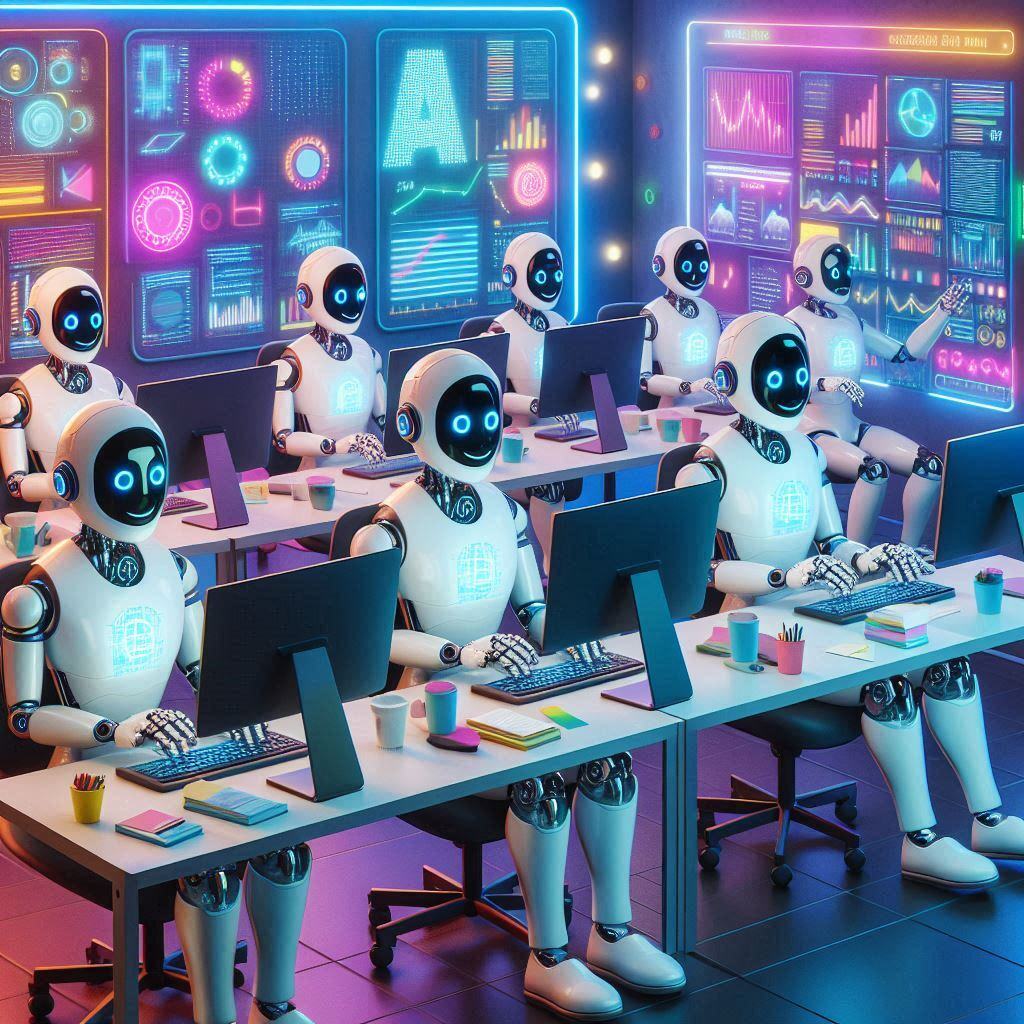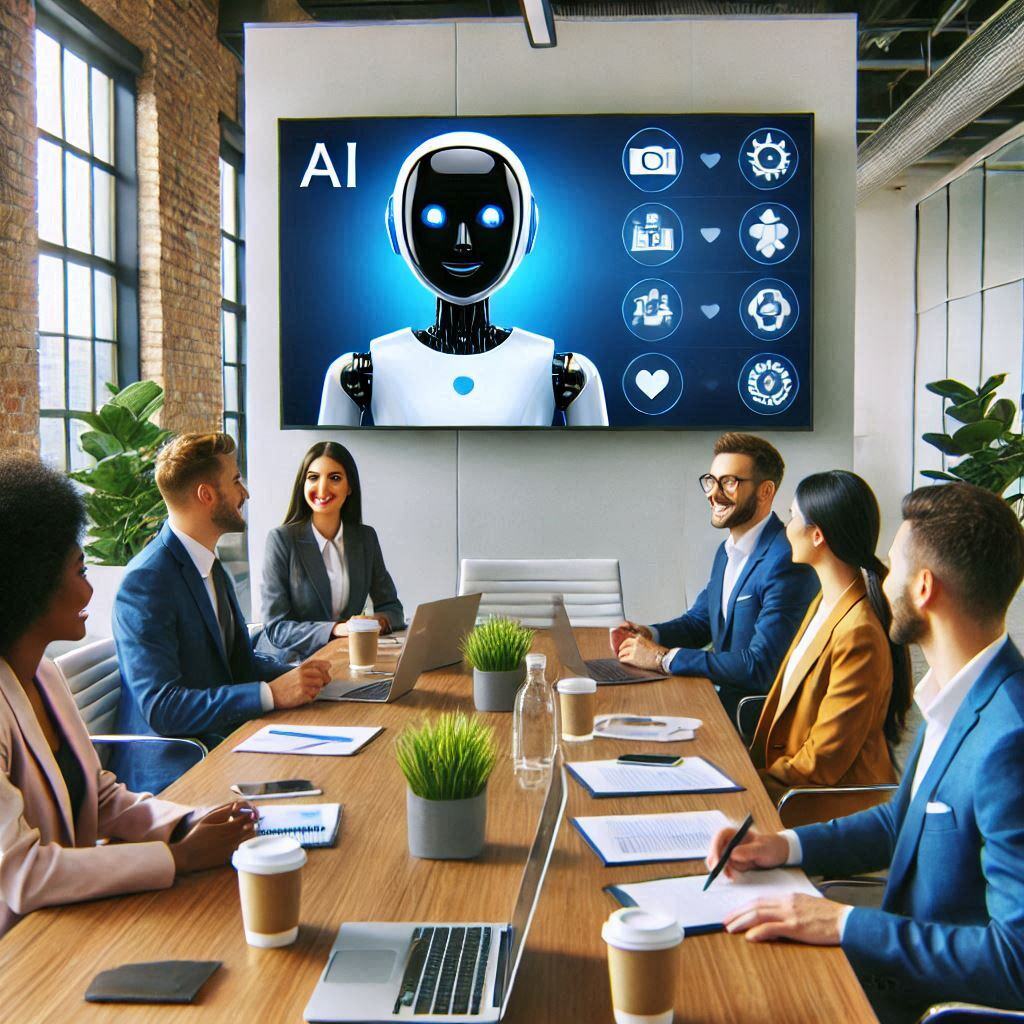Is There an AI That Can Create Documents?
Businesses and individuals are constantly looking for ways to streamline repetitive tasks and improve productivity. One such task that consumes time...
Discover 7 impactful ways AI enhances the restaurant industry, from personalized dining to efficient inventory management and more.
As AI technology advances, the restaurant industry is finding innovative ways to integrate it into daily operations, enhancing both customer experience and efficiency. In this article, we’ll explore various ways AI is transforming the industry, from managing inventory and automating routine tasks to creating memorable dining experiences. A recent example from Integrail’s "Cooking AI Agents" series shows just how interactive AI can be, with an AI Chef that reads menus, interacts with users, and even adds a touch of storytelling to enhance customer engagement.
One of the key ways AI benefits restaurants is through personalization. Today’s diners appreciate tailored experiences, and AI can provide just that.
Tailored Menu Recommendations
AI can analyze a customer’s past orders and preferences, suggesting dishes they are likely to enjoy. If a customer consistently orders vegetarian dishes, the AI could recommend similar options, perhaps with a brief description: “Try our roasted vegetable platter—it’s prepared using fresh, local produce that changes seasonally for the best flavors.” Personalized recommendations increase the likelihood of customer satisfaction and return visits.
Adapting Based on Dietary Needs
An AI-driven system can also accommodate dietary restrictions, automatically highlighting menu items that meet specific needs. For example, if a customer is gluten-free, the AI could guide them to suitable options and provide substitutions where available.
AI helps restaurants run smoother, allowing staff to focus on creating memorable customer interactions instead of spending time on repetitive tasks.
Automated Order Taking and Payment Processing
Many restaurants are implementing AI systems that handle order taking and payment processing. This ensures orders are accurately recorded, minimizing human error and speeding up service. A busy restaurant could install a virtual kiosk where customers place their orders and pay through an AI-powered system, freeing up staff for tasks requiring a human touch.
AI in Kitchen and Table Management
AI can also help streamline back-of-house operations by managing kitchen workflows and tracking table turnover. For instance, an AI system could monitor cooking times, ensuring dishes for a table are ready simultaneously. This level of coordination helps keep service smooth and consistent, reducing wait times and improving the dining experience.
While AI primarily enhances efficiency, it can also contribute to the restaurant’s brand through engaging visual and verbal interactions. Visual storytelling adds value, particularly when promoting unique or seasonal menu items.
AI-Generated Dish Visuals
AI can source or generate images of menu items, giving customers a clearer picture of what they’re ordering. A well-presented dish image can entice customers and influence their choices. For instance, the AI could present a beautifully plated pasta dish, describing it as, “Our hand-rolled pasta, topped with a rich, slow-simmered tomato sauce and freshly grated Parmesan.”
Vendor Stories for Unique Ingredients
AI can enhance transparency by sharing sourcing information. If a restaurant sources its mushrooms from a nearby organic farm, the AI could mention, “Our mushrooms come from a local farm known for its sustainable practices.” Such details foster trust and connection with customers who value locally sourced ingredients.
Restaurants often struggle with inventory waste, particularly when dealing with fresh ingredients. AI can help manage inventory more effectively, reducing waste and ensuring ingredients are always fresh.
Demand Forecasting to Minimize Waste
AI systems analyze patterns in customer orders to predict demand, allowing restaurants to adjust their stock accordingly. For example, if salads are popular during the summer, the AI system could recommend increasing the order of fresh greens during warmer months, reducing the risk of spoilage.
Supplier Coordination
AI can also facilitate seamless coordination with suppliers. If the AI system identifies a low stock of a high-demand item, it can automatically reorder ingredients, ensuring the restaurant doesn’t run out of popular menu items.
AI provides insights that go beyond the dining experience, helping restaurants refine their marketing strategies to attract new customers and engage with existing ones.
Targeted Campaigns
By analyzing customer data, AI can help create marketing campaigns focused on specific customer preferences. For example, if a restaurant finds that customers frequently order dessert, they could use AI to target those customers with special dessert promotions. These campaigns can be highly personalized, boosting engagement and driving repeat visits.
Location-Based Offers
AI can use geolocation to send offers to potential customers nearby, encouraging them to stop in for a meal. This is especially useful for restaurants in busy areas, where attracting foot traffic is key.
Health and safety are top priorities in the restaurant industry. AI can assist with compliance and help maintain high standards, especially in areas where manual tracking can be challenging.
Monitoring Food Storage and Safety Compliance
AI systems can monitor storage temperatures, expiration dates, and sanitation schedules, alerting staff when action is needed. For example, if a refrigerator’s temperature rises above a safe level, the AI could notify the staff immediately to protect perishable items.
Adapting to Health Protocols
AI is flexible, making it an ideal tool for adapting to changing health protocols. During the pandemic, many restaurants relied on AI to manage contactless ordering and automated cleaning schedules. These adaptations helped maintain safety while delivering quality service.
AI isn’t just about making things easier for staff—it can also enhance the dining experience by adding interactive elements that make the visit more memorable.
Interactive Chatbots for Customer Service
AI-driven chatbots can answer common questions about the menu, manage reservations, and gather feedback after a meal. This service ensures customers feel attended to, even when staff are busy. For example, a chatbot could help a customer decide between two menu items by describing the flavors and ingredients in detail.
Community Building Through Personalized Experiences
AI’s personalization capabilities extend beyond the meal. Imagine an AI system that remembers a customer’s favorite dish and asks if they’d like to try a similar item or sends a thank-you message after a reservation. These interactions build customer loyalty and create a community feeling, encouraging guests to return.
The restaurant industry is embracing AI to meet modern customer expectations and streamline operations. From personalizing menu recommendations to enhancing transparency through vendor stories, AI offers countless opportunities to improve the dining experience. Integrail’s platform is at the heart of these innovations, enabling restaurants to create AI agents that enrich customer engagement and make operations more efficient. As AI continues to evolve, restaurants that adopt these tools will not only keep up but also lead the industry in delivering memorable and engaging dining experiences.

Businesses and individuals are constantly looking for ways to streamline repetitive tasks and improve productivity. One such task that consumes time...

Businesses are constantly seeking ways to improve efficiency and streamline operations. One innovative approach gaining traction is multi-agent...

An AI Meeting Assistant is a software-powered tool designed to enhance meeting productivity by automating tasks such as transcription, note-taking,...
Start your journey with Integrail

Try AI Studio by Integrail FREE and start building AI applications without coding.

NEW White Paper: Discover how AI Studio accelerates your workflows